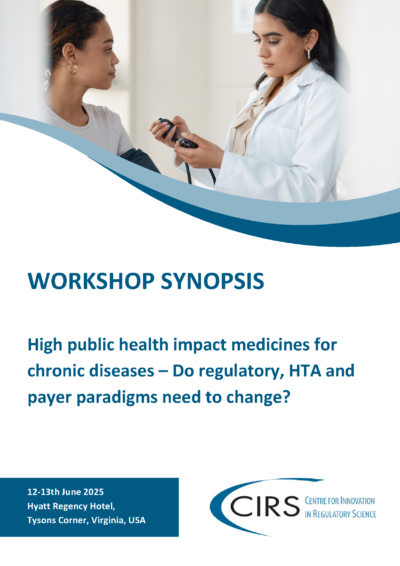In this workshop, CIRS convened industry, regulators, HTA agencies, payers and patient organisations to explore strategies for incentivising the development of high-impact medicines for common chronic diseases.
Background
In recent years, life expectancy has declined in affluent countries, particularly the US. While COVID-19 played a significant role, common chronic diseases—such as diabetes, cardiovascular, respiratory, metabolic, and neurological conditions—are major contributors. Despite their widespread impact, drug development for these diseases remains limited, with low success rates and fewer regulatory incentives compared to areas like oncology, rare diseases, and vaccines.
Recently, development efforts for common chronic diseases have shifted towards therapies that can prevent or slow down disease progression, rather than simply treating symptoms. Early treatment with such disease-modifying therapies could have a great impact on public and individual health. However, there are significant regulatory and reimbursement barriers to overcome due to high uncertainty around small effect size, a lack of validated biomarkers and variable disease progression.
To help address these issues, CIRS convened a multi-stakeholder workshop involving industry, regulators, HTA agencies, payers, academics and patient organisations. The aim was to identify key challenges and explore solutions for improving the drug development paradigm for common chronic diseases.
Recommendations
The workshop highlighted the need for a new adaptive, collaborative, and patient-centered approach to chronic disease treatment development, review and reimbursement.

